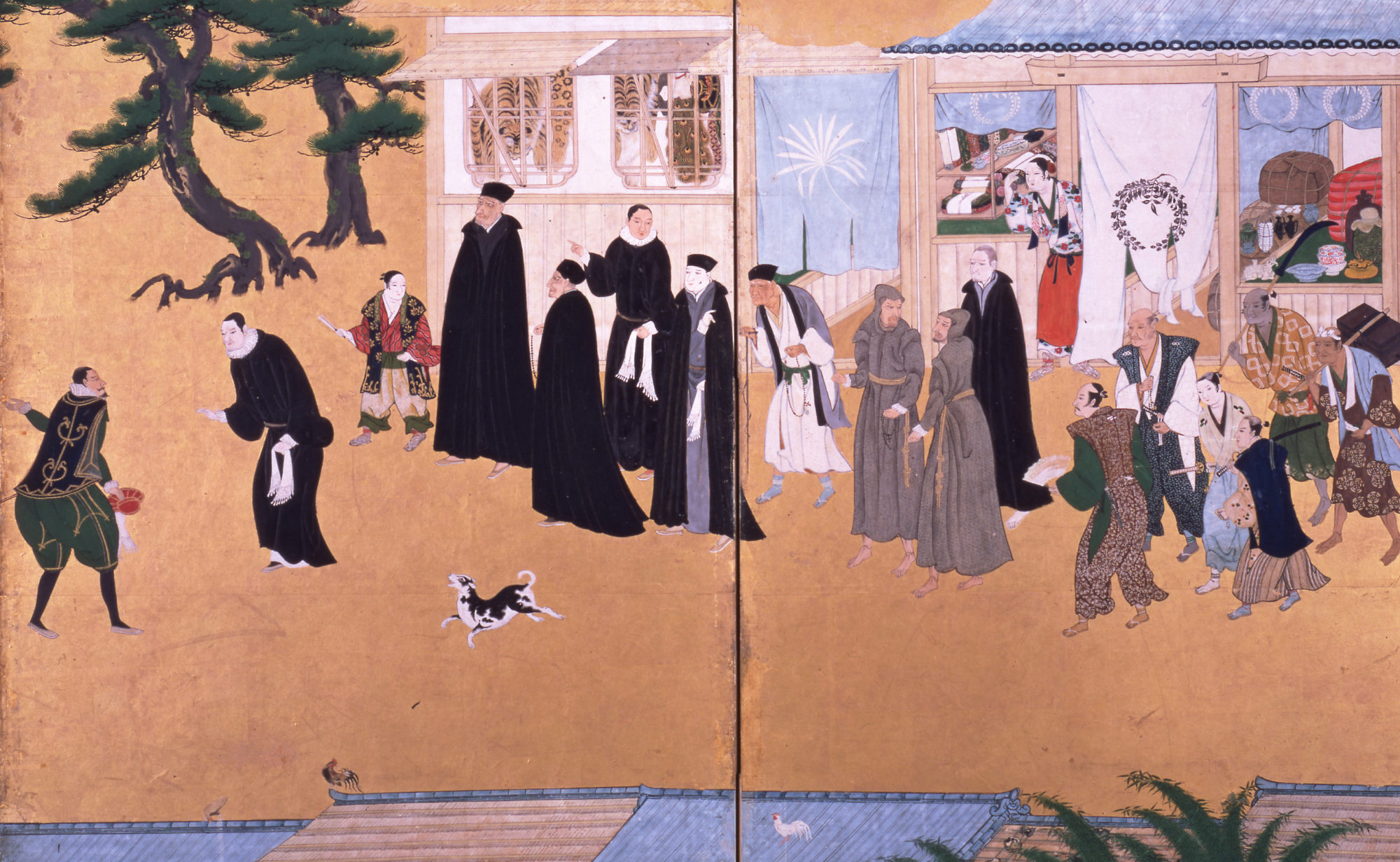Renaissance Society of America Annual Meeting (Berlin)
Friday, 27 March 2015
Hauptgebäude, Unter den Linden 6, Hörsaal 2014B
4:45–6:15 p.m.
Organizer: Hiro Hirai (Radboud University Nijmegen)
Sponsor: Japanese Association for Renaissance Studies (JARS)
Chair: Jorge Ledo (Universität Basel)
Yoshimi Orii (Keio University)
Lost and Found in Translation: Proselytization in Early Jesuit Publications in Japan
This paper explores several recently discovered texts printed by the Jesuit press in Japan from 1591 to 1614. Comparing them with their original versions published in Western languages in Europe, it will examine the changes made to their content during translation into Japanese. Such changes shed light on Jesuit proselytization in Japan. One example is the omission of passages related to free will, reflecting an ascetic approach that emphasizes the individual’s good works. Another example concerns the argument of Pietro Pomponazzi (whose name is not mentioned) on the immortality of the soul (anima). The Jesuits considered his argument ethically valuable while not theoretically valid. It could be taken as double-truth or as an expedient that they proactively added this argument in the Japanese version and applied it to their mission. This suggests that the Jesuits took a flexible approach to proselytization.
Angelo Cattaneo (Universidade Nova de Lisboa)
“The World Is Created”: Cosmography and Catholicae Veritates in China and Japan around 1600
This paper addresses the interactions between Buddhist, Confucian and Jesuit scientific cultures around 1600. Why did cosmography matter in the Jesuits’ encounters with the Chinese Confucian literati and the Japanese Buddhist clergymen? The study of both Jesuit sources and cosmographical representations designed in China and Japan will shed light on the ways their different worldviews competed and interacted in theological, political and scientific dimensions. World maps, celestial and terrestrial globes, clocks, astronomical instruments and cosmographic treatises were used as compendia of catholicae veritatis, to use the Jesuit Pedro Gomez’s expression. My analysis will show that the circulation and reception of scientific knowledge did not follow linear models like from Europe to Asia or linear forms of agency such as evangelization. But they implied articulated transformative processes of exchange by provoking critical reflection, challenging traditional convictions and calling for sensitive adaptations from all sides involved.
Ken Nejime (Gakushuin Women’s College)
Humanism, Aristotelianism, and Platonism in Japan’s Christian Century (1550–1650)
Francis Xavier of the Society of Jesus arrived in Japan in 1549. This marked the beginning of its Christian era, which lasted until the mid-seventeenth century. Xavier and his followers did not only bring the doctrines of the Catholic Church to the country. They also brought the customs and culture of the West whose major intellectual components of the time were Platonism, Aristotelianism and humanism. The revival of Platonism, which began in Italy, is known to have exerted a considerable impact on Renaissance culture. But Xavier also learned a type of theology which was heavily influenced by Aristotle’s teachings in Paris. Thirty years after Xavier, another Jesuit and a law graduate of Padua, Alessandro Valignano, came to Japan and founded a Jesuit college where the studia humanitatis was taught to local students. My paper will shed new light on the introduction of these three currents into Japan.
